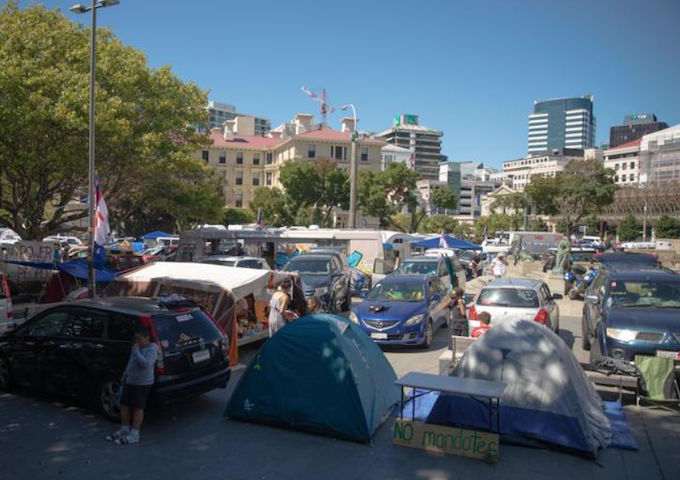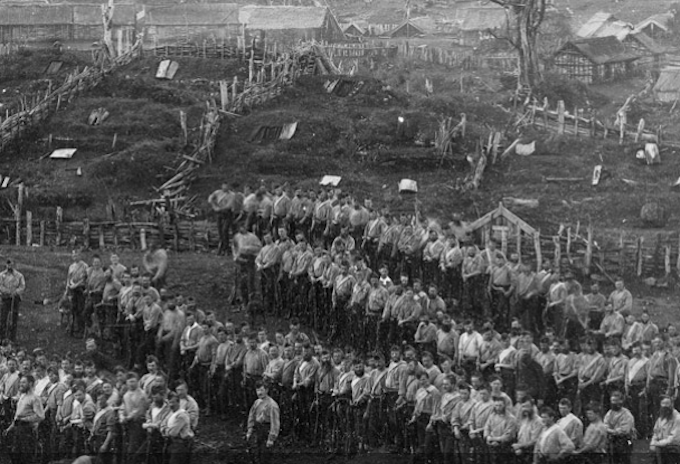
Wellington iwi leaders have called for an end to Aotearoa New Zealand’s 10-day-old anti-covid mandates protest in Parliament grounds and condemned comparisons made by protesters to the 1881 colonial assault at Parihaka.
The parliament complex and surrounding streets form part of the historic Pipitea Pā.
Port Nicholson Block Settlement Trust chairperson Kara Puketapu-Dentice said the ongoing occupation required a political solution.
“Our political leaders need to find a way out of this and stop the harm that’s happening on our ancestral lands, with some protesters having threatened our people and property,” he said in a statement.
“We’ve already had smashed windows and threats made against some of our kuia and kaumātua and uri involved in the covid response.”
Puketapu-Dentice said comparisons to the assault at Parihaka were wrong, and amounted to cultural misappropriation.
On 5 November 1881, about 1600 colonial troops invaded the western Taranaki rural settlement of Parihaka, which had come to symbolise peaceful resistance to the confiscation of Māori land.
Native Minister John Bryce ordered the arrest of Parihaka’s leaders — who were detained without trial for 16 months, the destruction of much of the village, and the dispersal of most of its inhabitants.
Ngāti Toa said it, too, wanted an end to the scenes in Thorndon, condemning threatening behaviour and describing aspects of the protest as deplorable.
Te Rūnanga o Toa Rangatira supported the people’s right to protest but added that its offices, marae and uri had been the target of intimidating and threatening behaviour for trying to support their indigenous communities.
This article is republished under a community partnership agreement with RNZ.













































